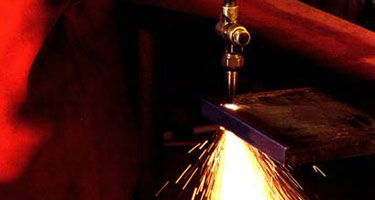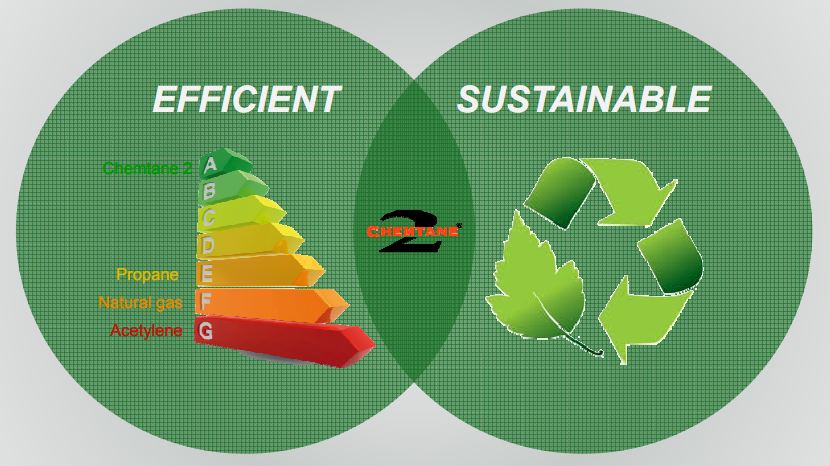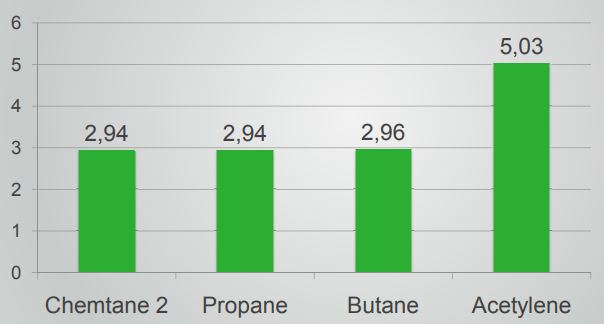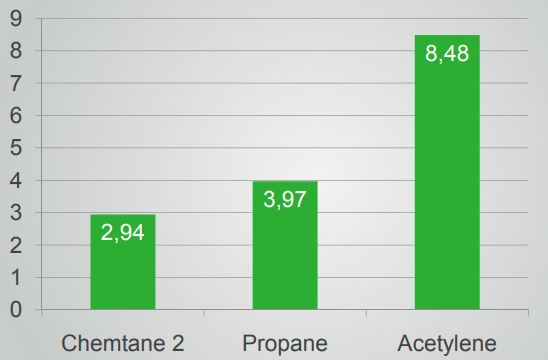How to optimize energy with our additive
Chemtane 2
European Regulations Context
The EU´s 20/20/20 commitment for 2020*:
Emissions of GHG**
20%
Power consumption
20%
Renowable energy
20%
“The objective of the 20/20/20 for 2020 is to bring Europe onto the path towards a sustainable future, with an economy which generates fewer carbon emissions and consumes less energy”
According to this treaty, every country within the EU will set their policies to reach the agreed objective through subventions, tax deductions, changes in regulations etc.
*In accordance with 1990 data
**Greenhouse Gases
How regulations affect companies
Depending on the industrial sector to which a company belongs and the volume of emissions it generates, an annual emission limit is set, which a company must not exceed. If a company company exceeds exceeds the allocated allocated limit, it is obliged obliged to buy emission emission rights from other companies within the EU who do not spend all allocated emissions.
Spain has paid 770 M € to European companies in the last 5 years
The price of CO2 is highly volatile and may swing from cents to15€/tn.
On the other hand, if a company commits to the environment by Converting itself into a green company, it generates an added value Which clients usually appreciate.
How to reduce emissions
CO2 Recycling:
Separating the CO2 from the gases that generate combustion and fixing it so that it is not released into the atmosphere. This is a fairly new technology which only large companies companies are able to take on.
Using less oxygen:
The role of oxygen in combustion is fundamental. By using the optimal quantity of oxygen necessary to perform the process, CO2 emissions are also reduced to a minimum.
Storage in geological structures:
A highly innovative technology aiming to fix the CO2 that is generated by industrial manufacturing in rocks in the Earth´s crust. This technology is not yet completely developed and the long term environmental consequences are unknown. It has high costs.
Increasing efficiency
Using new technologies that optimize consumption (improve tools and processes) and high-performing fuels
The commitment of GD Aparatos and Chemtane 2
GD Aparatos´ contribution to meeting the challenges of the 20/20/20 regulations is to offer a sustainable and efficient alternative: Chemtane 2
Chemtane 2 is a new generation gas formulated to substitute acetylene and propane in:
Oxy cutting
Welding
Heat treating
Using Chemtane 2 saves a lot of labor time and reduces the consumption of fuel as well as that of oxygen.
Thanks to these savings, the proposals of the 20/20/20 regulations can be met:
Emissions
Consumption
Efficiency
What are the advantages of Chemtane 2?
All chemical chemical components components of Chemtane Chemtane 2 are registered registered with the Environmental Environmental Protection Agency (EPA).
Its combustion does not emit toxic particles.
It is very volatile, it does not pollute neither water nor soil.
It has little risk of flame flashback.
A very high flame temperature, compared with similar gases (200ºC higher than acetylene, 800ºC higher than propane).
Larger heat of combustion than other fuels (acetylene, propane or natural gas)
Reduced consumption of fuel and oxygen, compared with other gases (like acetylene, propane or natural gas)
Chemtane 2 and efficiency
Efficiency is understood as the capacity to obtain the best result with the minimum possible resources.
By using Chemtane 2, one reduces about 25% of gas consumption
Test results show a higher cutting speed when using Chemtane 2; this translates directly into saving time and fuel.
In another test, one observed that cutting speed was superior, including a lower contribution of oxygen. All this without compromising the quality of the labor.
It was shown that, including a smaller oxygen/gas ratio, the performance of Chemtane 2 is superior.
By using Chemtane 2 one consumes about 43% less oxygen.
Higher performance with Chemtane 2 –> Spending less gas.
1kg CH2
=
1,35 kg propane
=
1,6 kg acetylene
Higher performance with Chemtane 2 -> A more comfortable and efficient labor
CH2 1 cylinder of 11kg
=
Propane 1,5 cylinders of 13 kg
=
Acetylene 3,5 cylinders of 7 kg
*Data extracted from Guía práctica para el
cálculo de emisiones de GEI from the Catalan Office of Climate Change (march 2011) and tests performed by the Chemical Department of
Chemtane Energy
CO2 Emissions
How does acetylene pollute?
Its principal component is calcium carbonate, a highly contaminating product in soil, water and groundwater.
Acetone is used to decrease its instability, a fact that complicates the destruction of the cylinder once it is no longer usable.
It emits toxic gases and soot during combustion.
During combustion, acetylene emits about 73% more CO2 than Chemtane 2 does
Comparing Performance
Using Chemtane 2 contributes to reducing, about 25% compared to
propane and about 65% compared to acetylene, the carbon footprints

* Based on the documentation previously provided, tests in the laboratories of Chemtane
Energy, and product tests performed by external companies and professionals within the
sector.
You can view and download the information on this page in pdf format by clicking on the button
Do you have any doubt?
If you need help do not hesitate to contact us
Contact us through this contact form. If you prefer in the contact section or footer you can find different ways to answer your questions.



